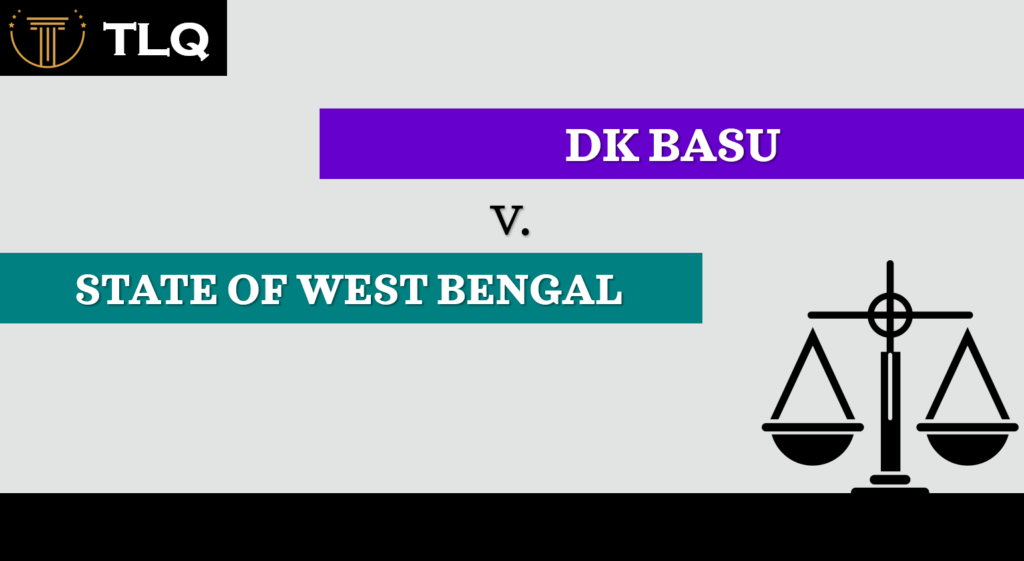Published On: September 21st 2025
Authored By: Ande Chandrika Ratna Siri
Vellore institute of Technology, Andhra Pradesh
ABSTRACT
Corporate Social Responsibility (CSR) in India has undergone a significant transformation, transiting from a volunteering philanthropic exercise to a mandatory legal framework under the companies act,2013 with section 135, India become the first country to mandate (CSR)spending by corporate, marking a pivotal shift in business responsibility is perceived. This article delves into the historical development of (CSR) in India, evaluates its statutory framework, scrutinizes socio-economic impacts and explores key implementation challenges. Through an analysis of legal provisions, case laws, govt reports, and international practice, the study explores whether (CSR) has effectively contributed to inclusive development the paper also anticipates future reforms, focusing on technological integrations. Policy realignment, and sustainable development in cages. In doing So, it proposes a re imagined (CSR) model that balances corporate profitability with social accountability.
INTRODUCTION
Corporate Social Responsibility (CSR) expresses the notion that corporations are not only meant to pursue self-interest but must consider the greater implications of their actions and how they impact the world and society in general. CSR is based on the assumption that corporations, although profit-oriented bodies, are accountable to the societies in which they are working. CSR in India has moved from a vision of moral responsibility to a perception of accepted legal responsibility, thereby altering a governance philosophy from voluntarism to accountability.
Prior to its legislative acknowledgment, corporate social responsibility (CSR) in India was essentially synonymous with charitable donations and sporadic philanthropy. Nowadays, it encompasses a range of activities such as environmental protection, education, skill development, health care, rural development, and gender equality. The Companies Act of 2013 incorporated this ethical aspect of business into the law, thus incorporating social good into business enterprise.
The significance of Corporate Social Responsibility (CSR) in modern society is brought out by the socio-economic inequalities, shortage of resources, and environmental degradation in India. Corporate sector, with its enormous financial and organizational capabilities, is best suited to address these issues. The current paper conducts a critical analysis of the legal, institutional, and judicial framework of CSR in India, examining its impacts and areas of improvement.
EVOLUTION OF CSR IN INDIA
(A)Pre-Modern and Ancient Influences
The idea of CSR is not new in India. Ancient Indian literature like Rig Veda and Manusmriti advocated dharma (duty) and public welfare. Kings and wealthy merchants were encouraged to encourage education, health, and art. Public welfare was organized by the Mauryan Empire of Emperor Ashoka in the shape of hospitals, roads, and rest houses.
Industrialists like Jamsetji Tata, G.D. Birla, and Lala Shriram set CSR precedents in colonial India early on in philanthropy, public works, and employee welfare. These efforts, while not so labeled, formed the ethical foundation of modern corporate responsibility.
(B) Post-Independence Developments
Post-independence, Indian policymakers were not highly confident in private enterprise and were more concerned with public sector initiatives. Post-liberalization (post-1991), private firms increased tremendously, and the case in favor of organized CSR became more compelling.
(C) Voluntary Guidelines and Industry Initiatives
In 2009, the Voluntary Guidelines on Corporate Social Responsibility (CSR) were put in place by the Ministry of Corporate Affairs (MCA), which were subsequently modified in 2011 to create the National Voluntary Guidelines (NVGs) on the Social, Environmental, and Economic Responsibilities of Business. The guidelines gave a non-statutory framework to ethical business practice and provided the foundation for potential statutory intervention.
Confederation of Indian Industry (CII)[1] and Federation of Indian Chambers of Commerce & Industry (FICCI) also promoted CSR by means of voluntary codes, exchange of best practice, and collaboration.[2]
STATUTORY FRAMEWORK OF CSR
(A)Section 135 of the Companies Act, 2013
India legislated Corporate Social Responsibility (CSR) law as Section 135 of the Companies Act, 2013. The provision mandates companies to implement CSR guidelines if they have at least one of the following criteria:[3]
- Net worth ≥ ₹500 crore
- Turnover ≥ ₹1,000 crore
- Net profit of ≥ ₹5 crore in any financial year
Such firms should:
- Establish a CSR Committee;
- Formulate a CSR policy;
- Invest a minimum of 2% of their three-year average net profits in corporate social responsibility initiatives;
- Publish CSR data in their board report.
Non-conformity, amended in 2021, can be penalized by fine under Section 135(7) and 135(8).
(B) Schedule VII: Activities Eligible
Schedule VII of the Act enumerates permitted CSR activities, including:[4]
- Eradicating hunger and poverty
- Promotion of health care and sanitation
- Education and vocational training Environmental sustainability
- Conservation of national heritage
- Military force assistance and emergency response activities.
- Rural and slum area development.
The Schedule has been amended from time to time for the purpose of addressing shifting developmental needs.
(C)CSR Rules and Mechanism of Compliance
Companies (Corporate Social Responsibility Policy) Rules, 2014, and the amendments of 2021 and 2022 also enhance the enforcement mechanism. The most significant changes are:[5]
- For projects ≥ ₹1 crore, compulsory impact studies
- Reversal of the balance CSR funds to a special fund or CSR Unspent Account
- Form CSR-2 Reporting is utilized to enhance transparency of data.
The MCA National CSR Portal monitors company spending and disclosures.
JUDICIAL APPROACH TO CSR
(A)Technip India Limited v. Registrar of Companies (2021).
The NCLAT held that non-utilization of the statutory quantum of CSR does not always invite penalty if the reasons are volunteered honestly. The tribunal pointed out that CSR is not a legislative provision but a matter of corporate conscience.[6]
(B) Hindustan Zinc Limited v. Rajasthan Electricity Regulatory Commission (2015).
The Rajasthan High Court once again reaffirmed the fact that CSR is not charity but a responsibility that is integral to the culture of corporates. The court appreciated the effort of the corporates to keep the environment green, which the court perceived as one aspect of CSR.[7]
(C) Other Applicable Decisions
In SEBI v. Sahara India Real Estate Corp Ltd. (2012), indirectly relating to CSR, the Supreme Court upheld corporate ethics and transparency—principles that are at the core of CSR[8].
In State of U.P. v. Yamuna Power and Infrastructure Ltd. (2021), Allahabad High Court noted that CSR must be for the real benefit to society and not for individual benefit.[9]
These choices reflect the courts’ support for substantive corporate social responsibility in line with national development goals.
IMPACT OF CSR IN INDIA
(A)Contributions and Trends in Finance
Indian companies collectively spent over ₹1.25 lakh crore on CSR between 2014 and 2023, according to MCA data.⁶ In FY 2022–23 alone:[10]
- ₹9,978 crore was spent on education and health
- ₹2,789 crore towards environmental sustainability.
- ₹1,253 crore for rural development.
Key contributors include Reliance Industries, Tata Consultancy Services, HDFC Bank, and Infosys.
(B) Sector and Geography Impact
Education & Skill Development: Activities encompass school buildings, teacher training, and IT literacy.
Healthcare: Activities range from free clinics, telemedicine, maternity care to COVID-19 relief (oxygen plants, vaccines).
Women Empowerment: Self-help groups, microfinance, and gender sensitization programs.
Rural and Tribal Development: Electrification, sanitation, drinking water, and agri-tech support.
However, an imbalanced ratio of corporate social responsibility spending is achieved in industrial or urban states whereas less developed states remain underfunded.
(C) Impact Assessment
A study by an Indian Institute of Corporate Affairs (IICA) [11]revealed that while CSR spending has increased, measurement of impact remains skewed. Less than 30% of companies undertake stand-alone impact studies.[12]
The Quality Council of India also highlighted issues of duplication, poor project monitoring, and lack of alignment with local needs.[13]
CRITIQUE AND CHALLENGES
(A)Superficial Compliance
Mainly, firms treat CSR not as an investment but as a box-ticking exercise. CSR reports lack transparency, and CSR policies are template-based. Organizations like to undertake high-profile projects in order to get good publicity.
(B) Implementation by Third Parties
The majority of companies outsource CSR application to third-party organizations or NGOs. This increases accountability, misspending of funds, and inefficiency in project implementation.
(C) Misuse, Greenwashing, and Conflict of Interest
There are instances where companies utilized CSR funds in constructing facilities that indirectly benefited their own companies. An instance of this is constructing schools for the children of employees or establishing CSR activities to improve company reputation.
(D) Ambiguity in Law and Enforcement
Schedule VII interpretation is controversial. For example, is the installation of CCTV cameras in public areas a CSR activity under “safety”? There is a role of ambiguity in concurrence in compliance. Additionally, there is limited clarity on the tax implication of CSR expenditure
COMPARATIVE INTERNATIONAL PERSPECTIVE
(A) United Kingdom
Directors of the Companies Act 2006 are asked to take into consideration community and environmental issues; however, there is no statutory requirement for CSR spending to be reported. Disclosure of social matters is suggested in the UK Corporate Governance Code.
(B)United States
U.S. CSR is stakeholder-activism and market-mechanism-based. They voluntarily disclose environment, social, and governance (ESG) factors. The Sarbanes-Oxley Act and the Dodd-Frank Act are governance-based and not social responsibility-based.
(C)European Union
The EU Directive on Non-Financial Reporting (2014/95/EU) [14]requires large enterprises to report on non-financial matters such as environmental concerns, social concerns, and human rights. There is no minimum expenditure incurred, however.
(D)China and South Africa
China encourages CSR through Company Law (2006) and industry guidelines, directed towards SOEs. South Africa, in the King IV Report on Corporate Governance, integrates sustainability into practice in corporate governance.
India’s law on CSR remains globally leading, but its implementation problems require well-balanced reform.[15]
FUTURE OF CSR IN INDIA
(A) Strategic Alignment with SDGs
CSR needs to be incorporated into the 17 UN Sustainable Development Goals (SDGs), primarily education, health, renewable energy, and gender equality. Strategic CSR is not just about compliance to create long-term social value.[16]
(B)Integration of Technology
Technology can promote CSR by:
- Blockchain for tracing funds
- Artificial intelligence to detect high-impact areas.
- Big Data for measuring outcomes
Initiatives like Tata Sustainability Group’s [17]online tracking of CSR and Infosys Foundation’s analytics[18] are examples of how innovation is driving accountability.
(C)Reform Proposals:
- Make impact assessment compulsory for all projects with a value of over ₹50 lakh
- Create a National CSR Authority for regulation and redress
- Enforce incentives (e.g., tax concession) for CSR in backward/tribal areas Allow carry-forward of unused CSR for a maximum of three years
- Encourage public-private CSR partnerships with gram panchayats and governments
CONCLUSION
India’s attempt to make Corporate Social Responsibility (CSR) mandatory is ambitious and path-breaking, especially in the backdrop of an emerging economy. While the legislative framework of Section 135 and Schedule VII of the Companies Act, 2013 is important, the success of CSR depends significantly on its genuine implementation. There is an urgent need to move from transactional CSR to transformational corporate social responsibility. With the integration of business with the needs of society, companies can have the potential to create a culture of responsible capitalism. To make CSR effective in the long term, it needs to be perceived as a strategic activity, backed by good governance, regulatory environments, and active stakeholder engagement. India is set to harness Corporate Social Responsibility (CSR) for multi-dimensional growth. The challenge before us today is to use it to provide concrete, measurable, and equitable benefits to those who need them most.
REFERENCES
1.Section 135 of the Companies Act of 2013.
2. Sch VII of the Companies Act of 2013.
3. The 2021 Amendment Rules for Companies (Corporate Social Responsibility Policy).
4. Registrar of Companies v. Technip India Ltd [2021] SCC OnLine NCLAT 321.
5. Rajasthan Electricity Regulatory Commission v. Hindustan Zinc Ltd [2015] AIR Raj 123.
6. “National CSR Data Portal,” Ministry of Corporate Affairs, 2023, https://csr.gov.in, accessed July 10, 2025.
7. “Evaluation Study on Corporate Social Responsibility,” Quality Council of India (2022) retrieved from https://qcin.org on July 10, 2025.
“17th Report on CSR in India,” by the Standing Committee on Finance (Lok Sabha Secretariat, 2021).
9. “National Voluntary Guidelines on Social, Environmental & Economic Responsibilities of Business,” Ministry of Corporate Affairs, 2011).
10. “Business and SDGs: Best Practices in India,” United Nations Development Programme (2020) accessed via https://www.in.undp.org
“Impact Assessment Guidelines for CSR,” Indian Institute of Corporate Affairs (2021).
12. Sahara India Real Estate Corp Ltd v. SEBI [2012] 10 SCC 603.
13. Yamuna Power and Infrastructure Ltd. v. State of U.P. [2021] Every HC 274.
14. “CSR Best Practices,” Confederation of Indian Industry (CII), 2020 http://www.cii.in
15. “Directive 2014/95/EU on Non-Financial Reporting,” European Commission http://eur-lex.europa.eu.
16. “CSR Impact and Monitoring Tools,” Tata Sustainability Group, 2023, https://www.tatasustainability.com
17. “Annual CSR Reports,” Infosys Foundation, 2023, https://www.infosys.org.
18. Corporate Responsibility: OECD Guidelines for Multinational Enterprises (2020), Organization for Economic Cooperation and Development (OECD).
[1] “CII CSR Handbook,” Confederation of Indian Industry http://www.cii.in.
[2] . “National Voluntary Guidelines,” Ministry of Corporate Affairs, 2011.
[3] Section 135(1) of the Companies Act of 2013.
[4] Sch VII of the Companies Act of 2013.
[5] . Rule 10(2) of the Companies (CSR Policy) Amendment Rules 2021
[6] SCC OnLine NCLAT 321 [paragraph 18] Technip India Ltd v. ROC [2021].
[7] AIR Raj 123 [para 33] Hindustan Zinc Ltd v RERC [2015].
[8] Sahara India Real Estate Corp Ltd v. SEBI [2012] 10 SCC 603
[9] . Yamuna Power and Infrastructure Ltd. v. State of U.P. [2021] All HC 274.
[10] “CSR Expenditure Data 2023,” Ministry of Corporate Affairs, https://csr.gov.in, accessed July 10, 2025.
[11] Impact Assessment Guidelines,” Indian Institute of Corporate Affairs, 2021.
[12] CSR Evaluation Report 2022,” Quality Council of India http://qcin.org.
[13] Lok Sabha Secretariat, “17th Report on CSR in India,” Standing Committee on Finance (2021)
[14] . European Commission, https://eur-lex.europa.eu/Directive 2014/95/EU.
[15] . Guidelines for Multinational Enterprises, OECD, 2020.
[16] . UNDP India, “Integrating SDGs into CSR,” United Nations Development Programme (2020).
[17] “Digital CSR Tracker,” Tata Sustainability Group https://www.tatasustainability.com.
[18] . “CSR Annual Impact Report 2023,” Infosys Foundation https://www.infosys.org.




